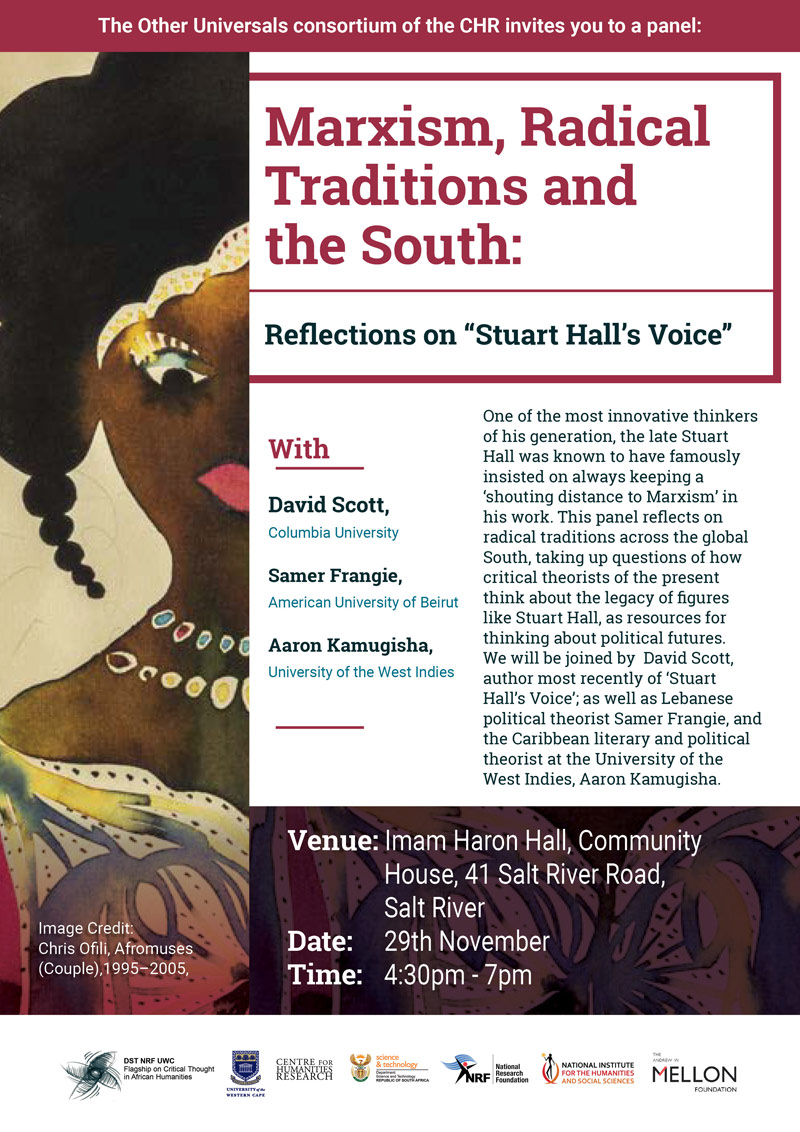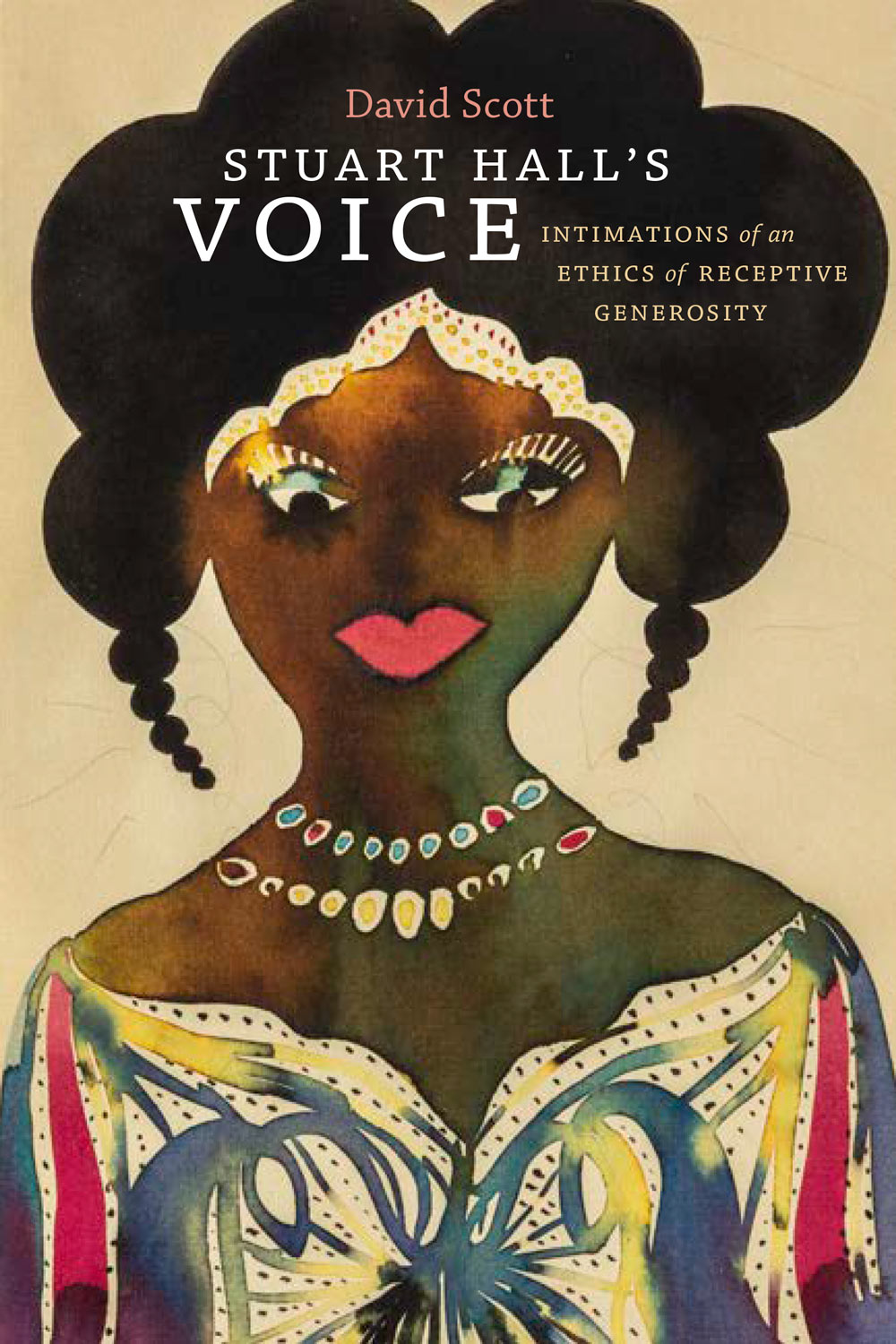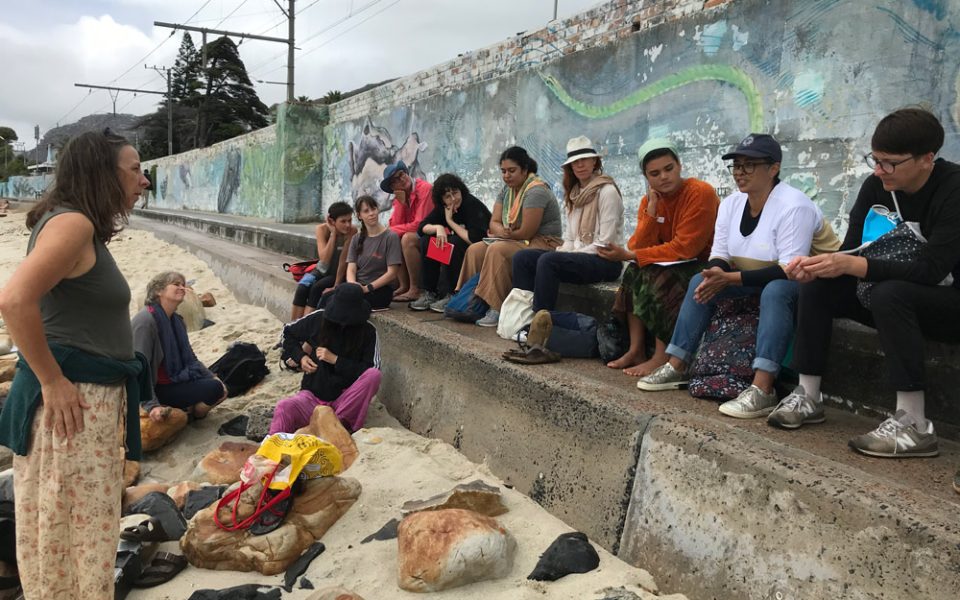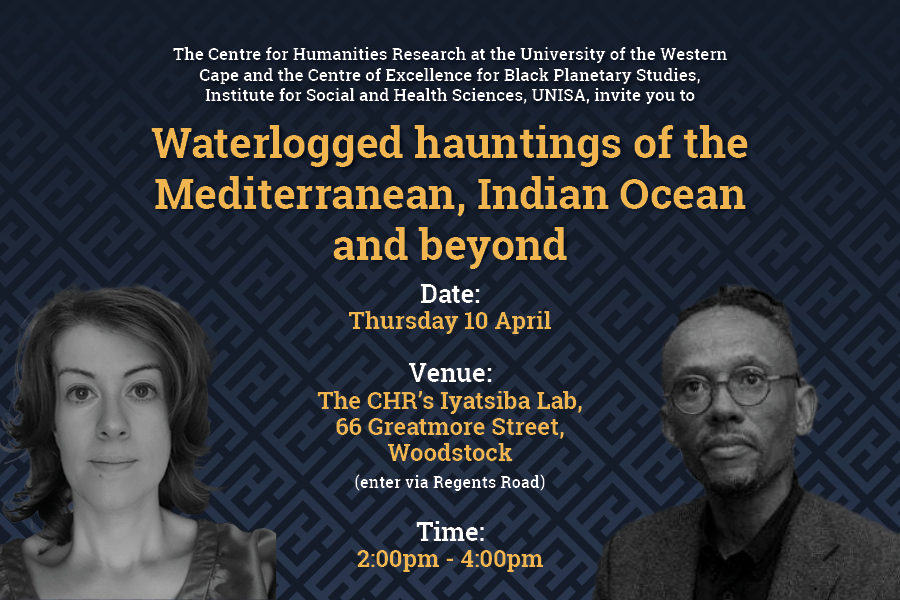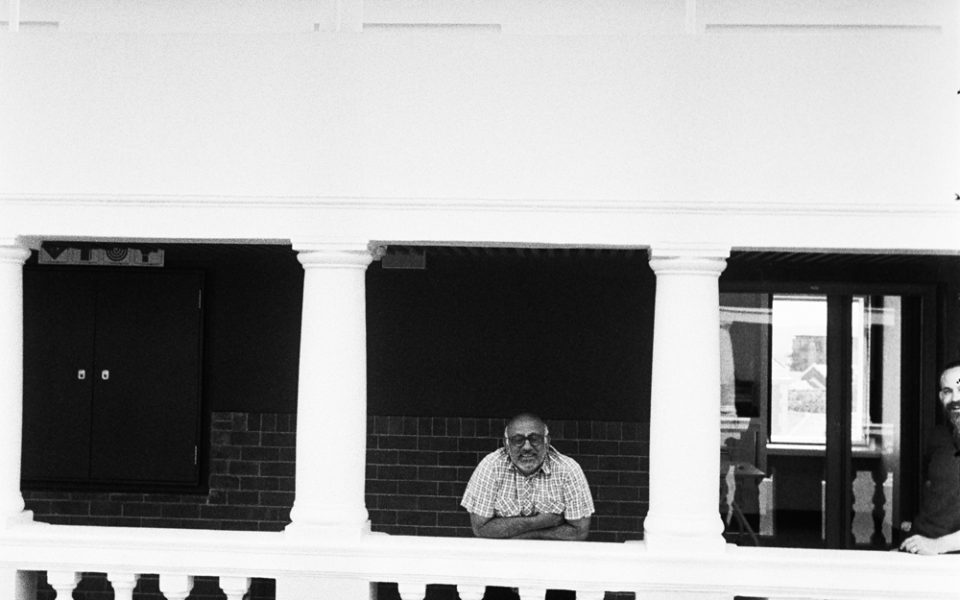Marxism, Radical Traditions and the South: Reflections on “Stuart Hall’s Voice”
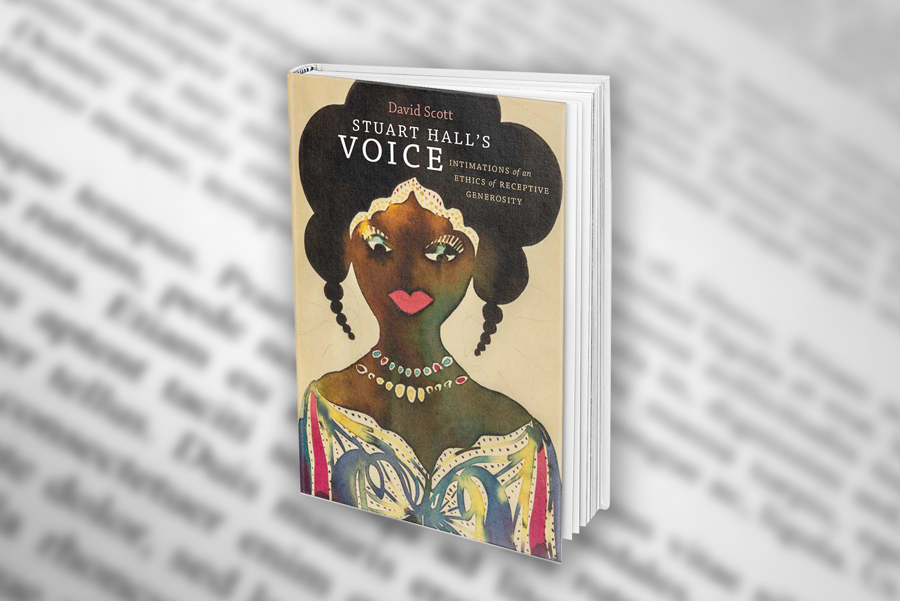
The Other Universals consortium of the CHR invites you to a panel:
With
David Scott,
Columbia University
Samer Frangie,
American University of Beirut
Aaron Kamugisha,
University of West Indies
Venue: Imam Haron Hall, Community
House, 41 Salt River Road, Salt River
Date: 29th November
Time: 4:30pm – 7pm
Stuart Hall’s Voice explores the ethos of style that characterized Stuart Hall’s intellectual vocation. David Scott frames the book—which he wrote as a series of letters to Hall in the wake of his death—as an evocation of friendship understood as the moral and intellectual medium in which his dialogical hermeneutic relationship with Hall’s work unfolded. In this respect, the book asks: what do we owe intellectually to the work of those whom we know well, admire, and honor? Reflecting one of the lessons of Hall’s style, the book responds: what we owe should be conceived less in terms of criticism than in terms of listening.
Hall’s intellectual life was animated by voice in literal and extended senses: not only was his voice distinctive in the materiality of its sound, but his thinking and writing were fundamentally shaped by a dialogical and reciprocal practice of speaking and listening. Voice, Scott suggests, is the central axis of the ethos of Hall’s style.
Against the backdrop of the consideration of the voice’s aspects, Scott specifically engages Hall’s relationship to the concepts of “contingency” and “identity,” concepts that were dimensions less of a method as such than of an attuned and responsive attitude to the world. This attitude, moreover, constituted an ethical orientation of Hall’s that should be thought of as a special kind of generosity, namely a “receptive generosity,” a generosity oriented as much around giving as receiving, as much around listening as speaking.
About The Author(s)
David Scott is Professor of Anthropology at Columbia University, and is Founder & Editor of Small Axe journal, An internationally renowned anthropologist and intellectual historian, Scott’s work is concerned with reconceptualizing stories of the colonial past as a roadmap to post-colonial futures. His monograph include Refashioning Futures: Criticism & Postcoloniality (1999), Conscripts of Modernity: the Tragedy of Colonial Enlightenment (2004) and Omens of Adversity: Tragedy, Time, Memory, Justice (2014), and Stuart Hall’s Voice (2017).
Samer Frangie is an associate professor in the Department of Political Studies and Public Administration and the director of the Center for Arab and Middle East Studies at the American University of Beirut. His research is at the intersection of the intellectual history of the Arab world and political theory, and examines the history of the Arab left.
Aaron Kamugisha is a Caribbean literary and political theorist at the University of the West Indies, Cave Hill Campus. He did his PhD Social and Political Thought at York University in Toronto. His current work is a study of coloniality, cultural citizenship and freedom in the contemporary Anglophone Caribbean, mediated through the social and political thought of C.L.R. James and Sylvia Wynter.


